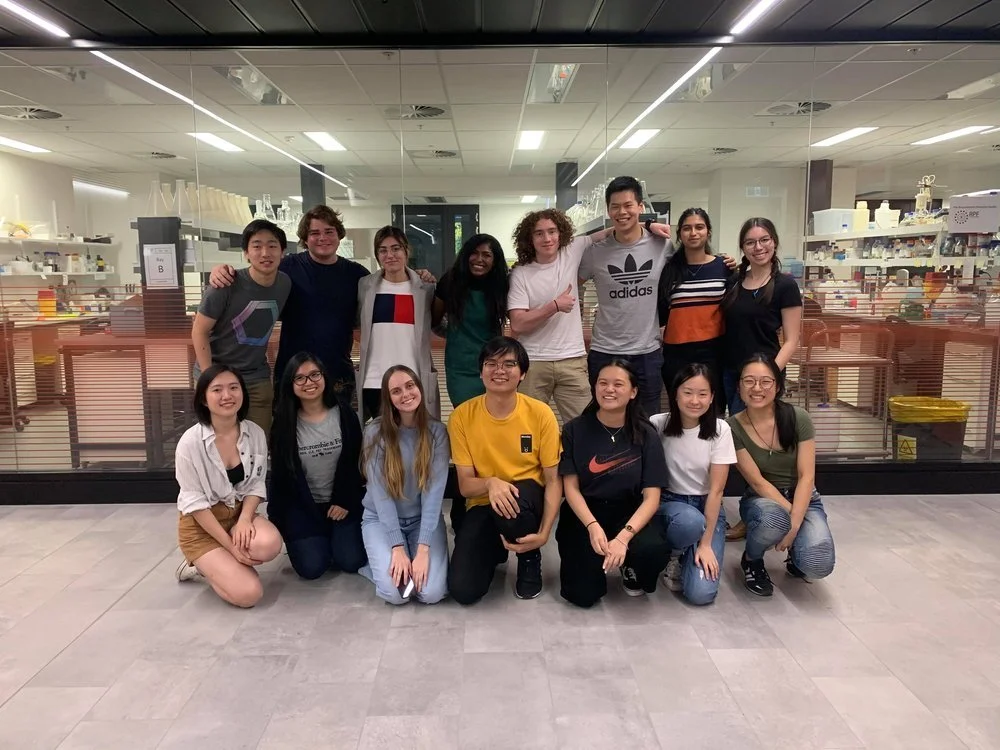Deborah Chandra’s Story: Science Research and Communication
iGEM and Science
Deborah enjoys doing science and exploring what it can do for her, particularly in research. During her time as an undergraduate, she was eager to understand how to perform research. This led her to join the iGEM 2020 team at the University of New South Wales, Australia.
The 2020 UNSW iGEM team focused on a local environmental issue on one of Australia’s national treasures, the coral reefs of The Great Barrier Reef. They discovered that rising ocean temperatures, as a result of global warming, triggers coral reef bleaching. Therefore, they developed PROTECC Coral (Prevent Reactive Oxygen And Thermal Extreme Caused CARKING), which aims to preserve the relationship between the coral and its algae symbiont. They aimed to do this by designing thermo-tolerant microalgal symbionts, which could prevent the breakage of this relationship in higher temperatures, thus preserving the biodiversity that exists in the Great Barrier Reef.
Deborah led the Wiki team and additionally worked on Human Practices. She gained experience in both project design and science communication by speaking with various stakeholders whom could be affected by the implementation of their solution. As a result, they were recognized with several awards, including Best Human Practices and Best Education.
“I think that was the first time I ever thought about science through the human practices side. We're all studying science and we're surrounded by other science students with the same mindset. It’s different to someone who probably has no background in science; and so doing a lot of work with our stakeholders really taught me how our scientific solutions impacted the communities dependent on the Great Barrier Reef, and I think that was the first time I ever had to think about that.”
The Journey After iGEM
“I just really enjoy science. It’s easy for me to find things interesting”
Deborah has a strong underlying passion in science and thus the iGEM competition was a good fit for her interests. It exposed her to wider fields in synthetic biology. After graduating from her undergraduate study, she pursued her career as a research assistant at the Kirby Institute, a medical research institute affiliated with the University of New South Wales. Her research is focused on investigating the immune responses of different patient cohorts to the various strains of the SARS-Cov2 virus.
“I think for me, I just really enjoy science. It’s easy for me to find things interesting and I'm just learning new things in this job about how we can investigate the immune response. I think it suited me because I enjoy problem-solving and figuring out what the next step is and I think that's just a sign that I really like being in science”
Deciding a Career After Graduation
She also shared some advice for people who would be interested in following a similar career. She shone light on the benefits of making connections with like-minded people in the scientific community. Her supportive team during the iGEM competition has helped her define what has interested her and has additionally helped in job interviews.
“I think it's always good to make connections and meet a lot of people. Even if you're a shy person, in your degree, you can always talk to your professors who lecture in your courses and even with other students. Also being in a really supportive environment… ask your supervisors what you could do with your degree. The best way to learn is by learning from someone who's been through it. Don’t be afraid of talking to your professors, and don't be afraid of making friends that will help you along the way. I think that's definitely helped me in the long run.”
Last but not least, to Deborah, iGEM means collaborative work.
“As I keep saying my team had really good communication, and I think without that specific group of people, we probably wouldn't have reached the standard that we attained without each other We managed to win best human practices and best Education and I think that's because, everyone just pushed to do more, and be the best that we could possibly be.”








